- Student
- Student
- News
- Business School
- Doctoral School
- International Dean’s Office
- International Cooperation Office
- Academic Career Office
- Academic Sports Association
- Library
- Student Groups
- Internships
- Electronic Examination Center
- Scholarship office
- Finance Department
- Your Stay in Poland
- Academic Schedule
- The Centre for People with Special Needs
- Alumni and Students Association
- Personal Student Profile
- Support Zone
- Virtual University
- Contact
- Individual Study Plan
- Admissions
- Admissions
- Research
- University
- Erasmus+
Otwórz/zamknij menu dostępności przy pomocy klawisza Enter
Sustainable Development Strategy
The UN Sustainable Development Goals (SDGs) are a roadmap for transforming and reshaping the world in which the needs of the present generation can be met in a sustainable manner, with respect for the environment, while simultaneously taking into account the needs of the future generations.
WSB University conducts activities that are part of the implementation of the 17 Sustainable Development Goals and the related 169 actions included in the document "Transforming Our World: Agenda for Sustainable Development - 2030", with a special focus on 7 of them.
- We are aware that as a university, we can make a real difference in shaping good attitudes in society, and our actions translate directly into the environment, both academic, business and natural. WSB University is managed in a sustainable manner, and we have now made this formal by introducing a Sustainability Strategy. It has been approved and adopted by WSB University Senate, which shows that the University's employees are aware of contemporary challenges, which provides them with a special priority in their daily activities. The Sustainable Development Strategy is part of WSB University mission, vision and strategic goals. Activities supporting sustainable development build the value of WSB University, affect its prestige and credibility in the academic and business environment.

Assoc. Prof. Zdzisława Dacko-Pikiewicz, PhD, Rector of the WSB University
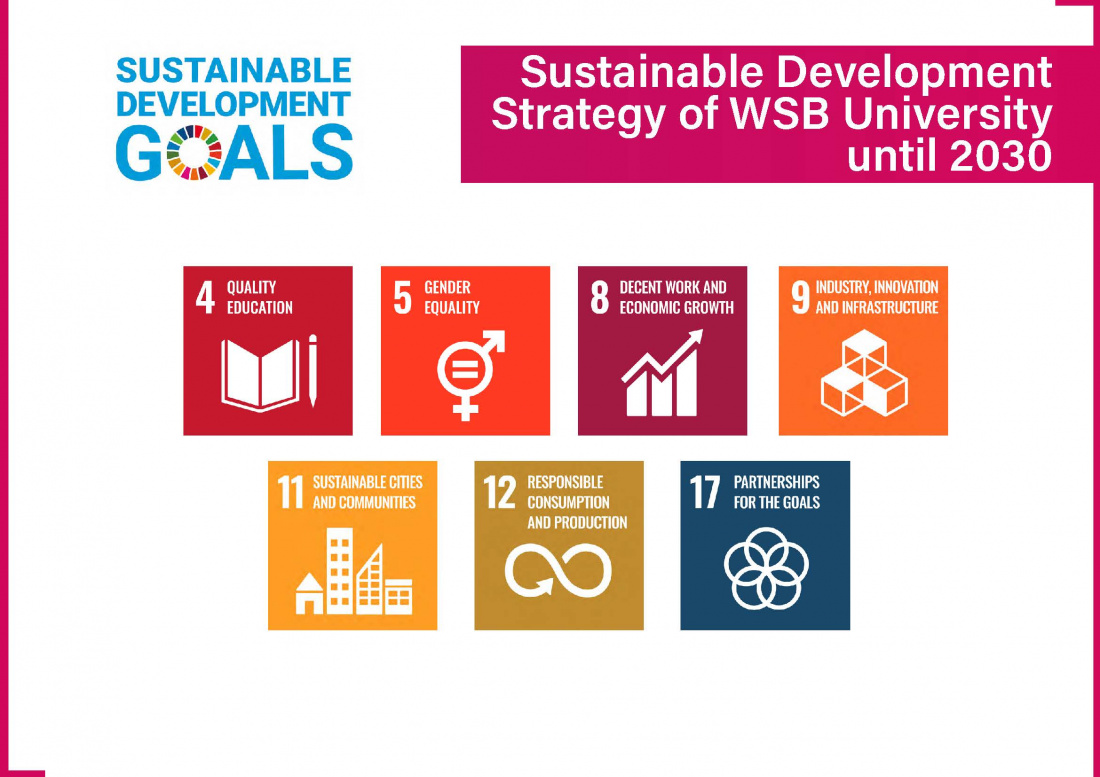
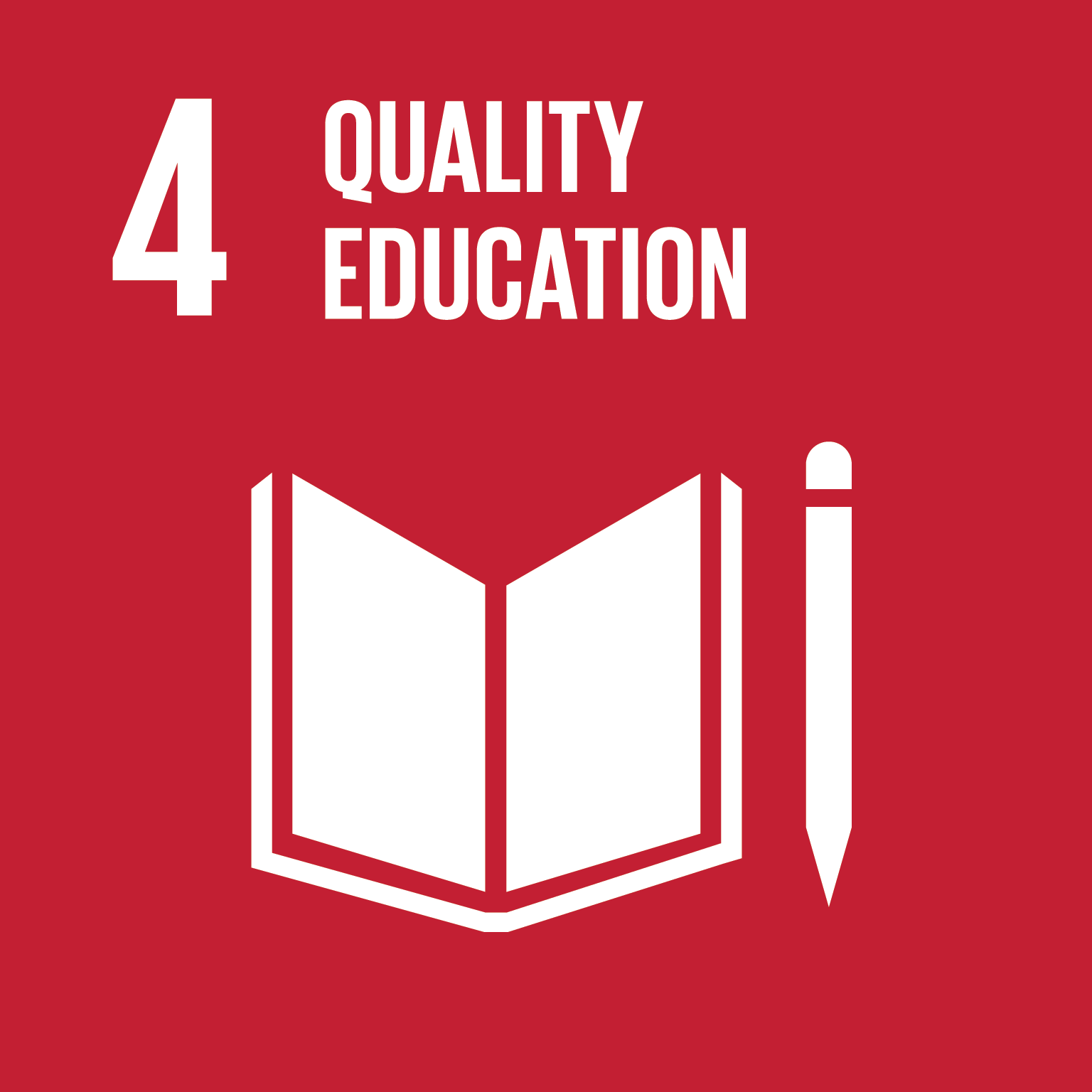 Ensure inclusive and equitable quality education and promote lifelong learning opportunities for all.
Ensure inclusive and equitable quality education and promote lifelong learning opportunities for all.
WSB University is committed to:
- By 2030, significantly increase the number of young people and adults with the right skills, including technical and vocational skills, needed to gain employment, find decent work and develop entrepreneurship;
- By 2030, eliminate gender disparities in education and ensure equal access to education and vocational training at all levels for the most vulnerable, including people with disabilities, indigenous peoples and vulnerable children;
- By 2030, ensure that all learners acquire the knowledge and skills needed to promote sustainable development, including, but not limited to, through education for sustainable development and sustainable lifestyles, human rights, gender equality, promoting a culture of peace and non-violence, global citizenship and an appreciation of cultural diversity and the contribution of culture to sustainable development.
The aim of the WSB University is to support young people and adults in obtaining high-quality education and finding employment, as well as strengthening entrepreneurship by providing relevant and up-to-date knowledge and skills in the area of professional development conducive to social diversity.
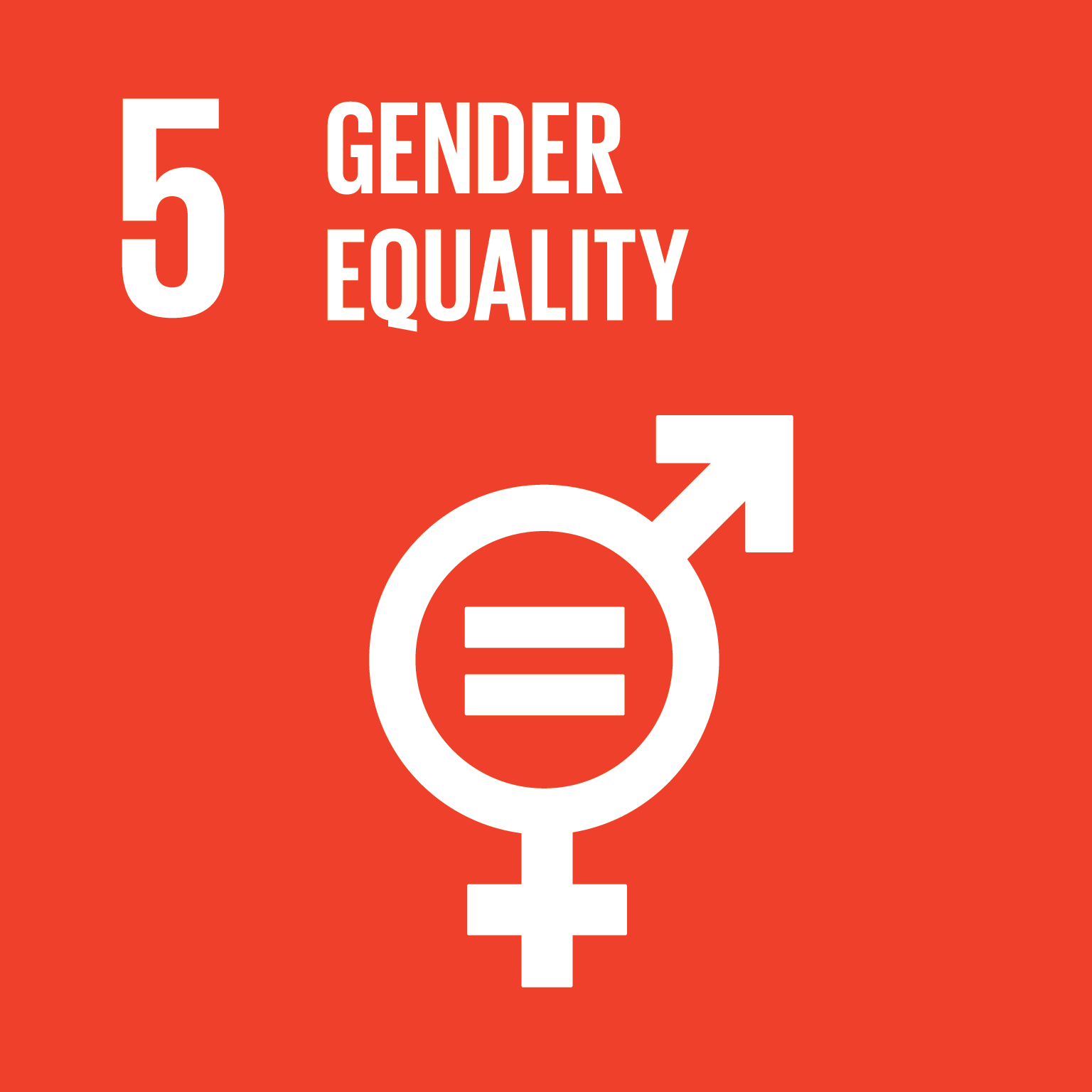 Achieve gender equality and empower all women and girls.
Achieve gender equality and empower all women and girls.
The WSB University is committed to:
- Ensure women's full and effective participation and equal opportunities in leadership at all levels of the university's decision-making process;
- Increase the use of technology, in particular information and communication technologies, to contribute to the empowerment of women;
- Adopt and strengthen policies that promote gender equality and empower women and girls at all levels.
The goal of the WSB University is to support women in their pursuit of managerial positions and to implement gender equality policy.
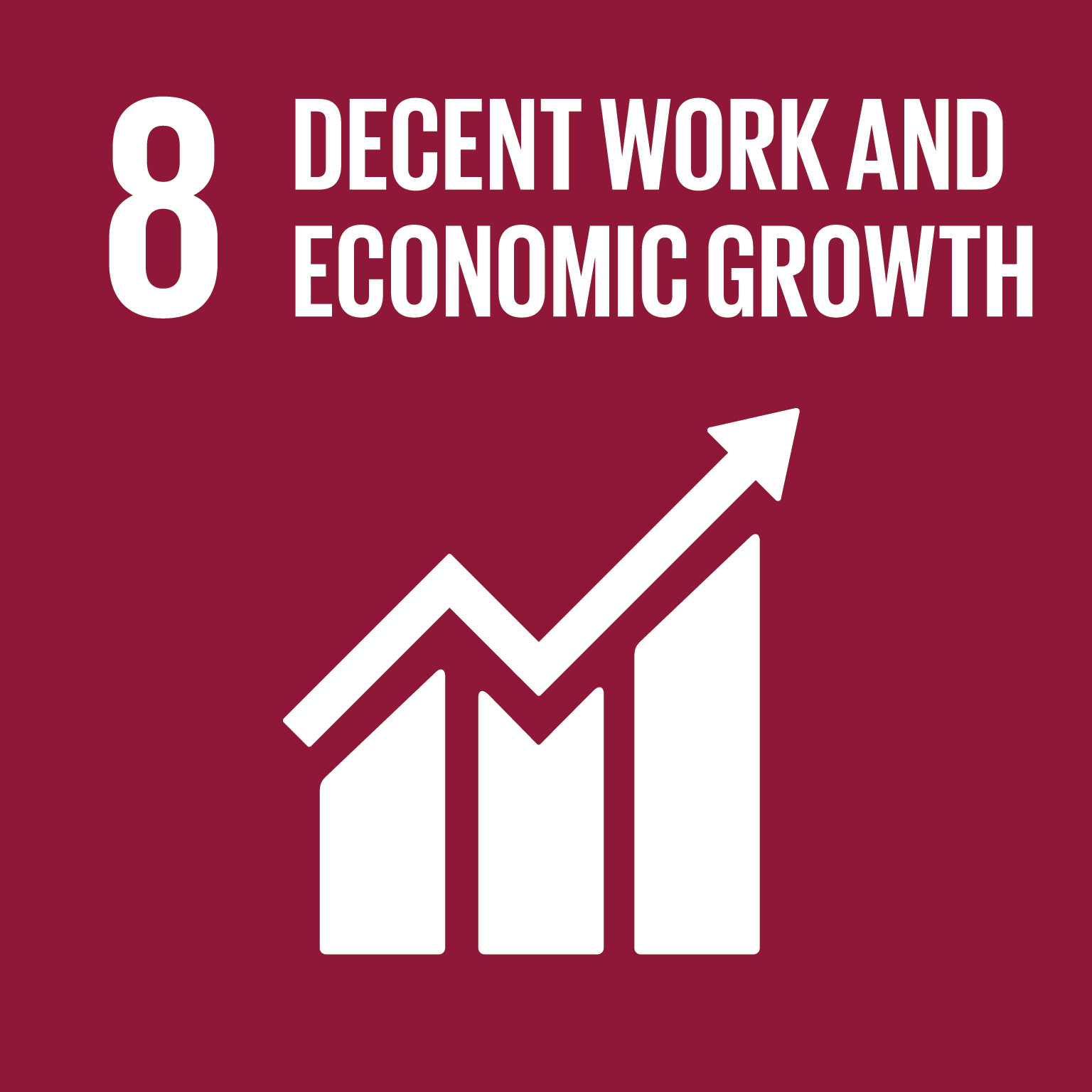 Promote sustained, inclusive and sustainable economic growth, full and productive employment and decent work for all.
Promote sustained, inclusive and sustainable economic growth, full and productive employment and decent work for all.
WSB University is comitted to:
- Promote a development policy that supports production activities, the creation of decent jobs, entrepreneurship, creativity and innovation, and encourages the exit from the shadow economy and the development of micro, small and medium-sized enterprises, through access to financial services;
- By 2030, ensure full and productive employment and decent work for all women and men, including young people and people with disabilities; ensure equal pay for work of equal value;
- Protect labor rights and promote a safe working environment for all workers, including migrant workers, in particular migrant women and those in precarious employment.
Our goal is to create an innovative, creative, equal opportunity development and safe work environment that supports employees and their diversity.
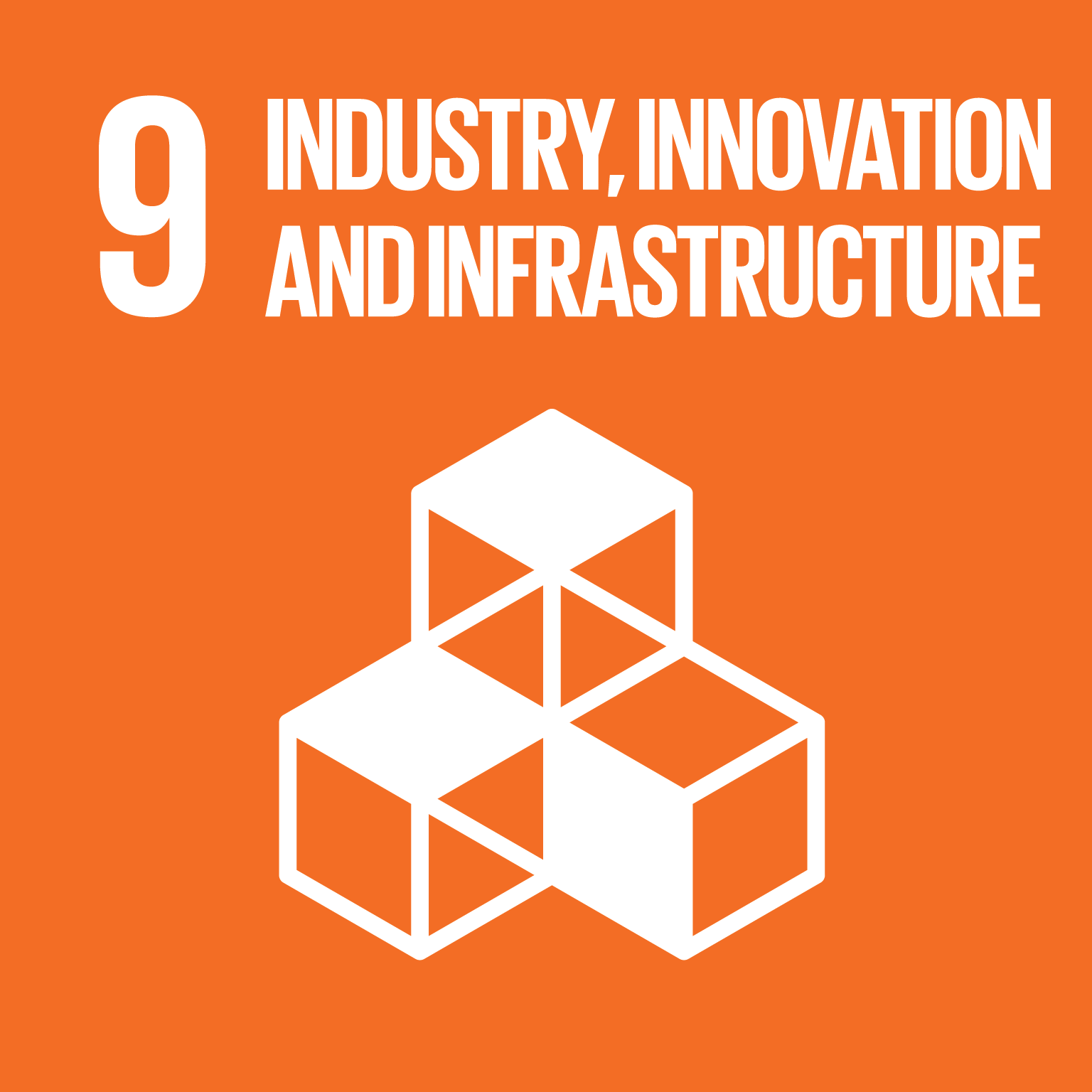 Industry, innovation and infrastructure.
Industry, innovation and infrastructure.
WSB University is committed to:
- Intensify scientific research and raise the technological level of the industrial sector by producing innovations, significantly increasing the number of employees in the research and development sector and by increasing private financial outlays for development;
- Support domestic technological development, research and innovation through the conduct of policies i.a. industrial diversification and creating added value from current resources.
Our goal is to provide a framework for cooperation with external stakeholders in improving the quality and effectiveness of education. Our goal is to strengthen domestic research and technological development.
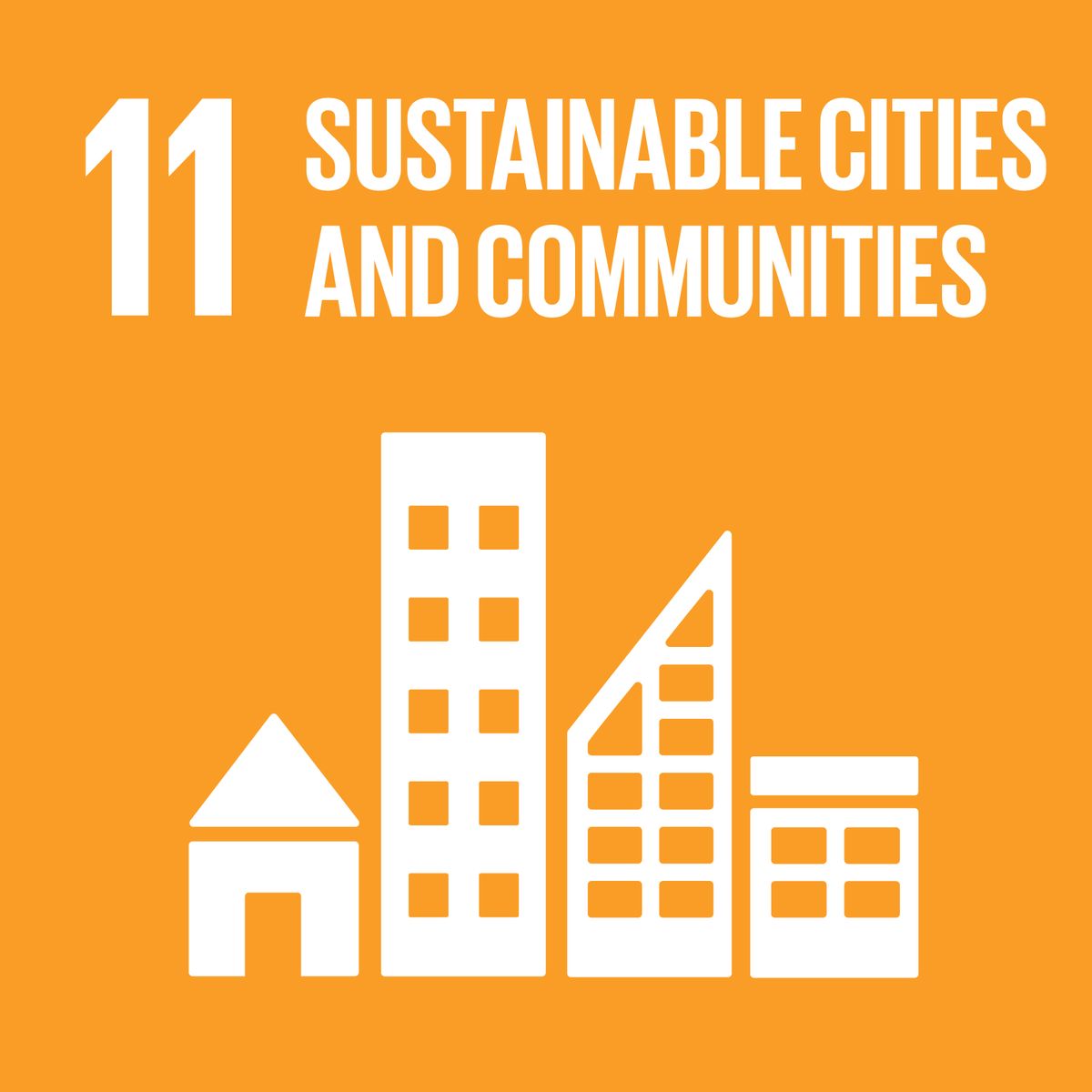 Make cities and human settlements inclusive, safe, resilient and sustainable.
Make cities and human settlements inclusive, safe, resilient and sustainable.
WSB University is committed to:
- By 2030, ensure access for all to safe, affordable, sustainable and accessible transport systems, improve road safety, especially through the development of public transport, paying particular attention to the needs of vulnerable groups, women, children, people with disabilities and the elderly;
- By 2030, intensify sustainable and inclusive urbanization and opportunities to participate in integrated and sustainable planning and development of human settlements;
- By 2030, reduce the indicator of the city's negative impact on the environment, paying particular attention to air quality and the management of municipal waste and other types of waste.
Our goal is to work with local communities and stakeholders to increase the level of safety in cities and access to transport infrastructure for all people, as well as to support access to shared, green public spaces and clean air.
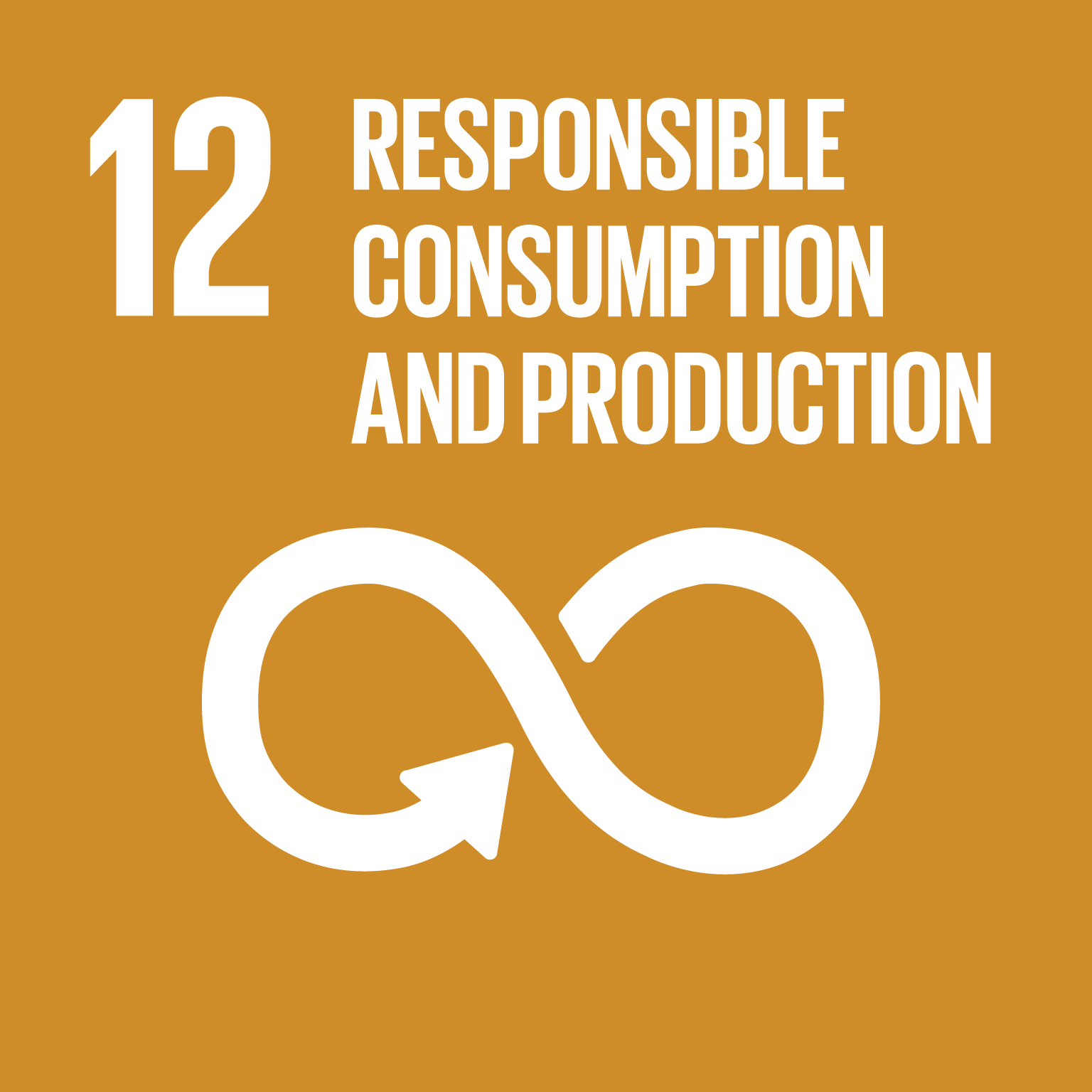 Responsible consumption and production.
Responsible consumption and production.
WSB University is committed to:
- By 2030, to significantly reduce waste generation through prevention, reduction, recycling and reuse;
- Encourage companies, especially large and multinational ones, to implement sustainable development practices and include information on this subject in their regular reports;
- By 2030, provide access to relevant information and raise people's awareness of sustainable development and lifestyles in harmony with nature.
Our goal is to promote responsible consumption and waste prevention at an institutional level, support sustainable practices among our stakeholders, and nurture a sustainable mindset and lifestyle among our employees and students.
 Strengthen the means of implementation and revitalize the Global Partnership for Sustainable Development.
Strengthen the means of implementation and revitalize the Global Partnership for Sustainable Development.
WSB University is committed to:
- Strengthen regional and international cooperation in access to science, technology and innovation; step up knowledge sharing under mutually agreed terms, including by coordinating technology facilitation mechanisms;
- Promote the development, transfer, dissemination and dissemination of environmentally friendly technologies in developing countries on favorable and preferential terms, based on joint arrangements;
- Strengthen partnerships for sustainable development, complemented by multi-stakeholder partnerships that mobilize and share knowledge, skills, technology and finance to support the achievement of the Sustainable Development Goals;
- Encourage and promote effective public, public-private and civil society partnerships, building on partnership experience and resource strategies.
Our goal is to actively participate and strengthen national and international partnerships with research institutes and higher education institutions in order to solve social, economic and environmental problems and to increase participatory knowledge exchange and foster innovation.